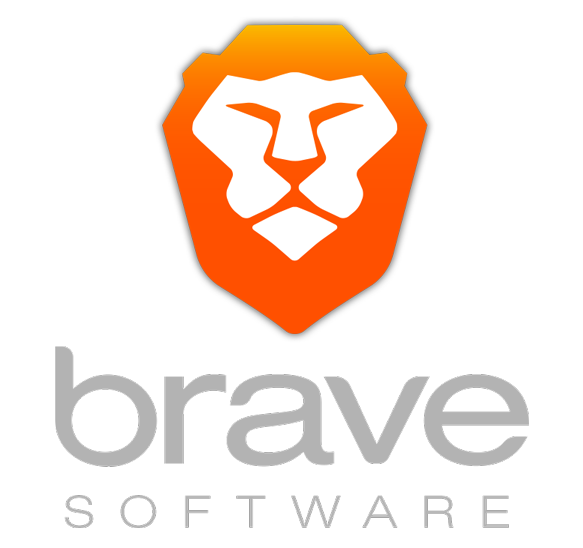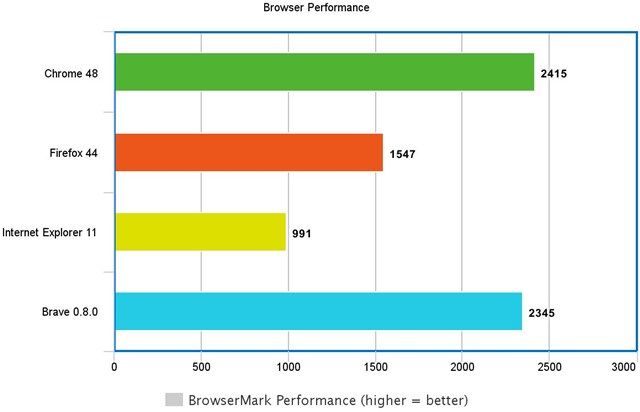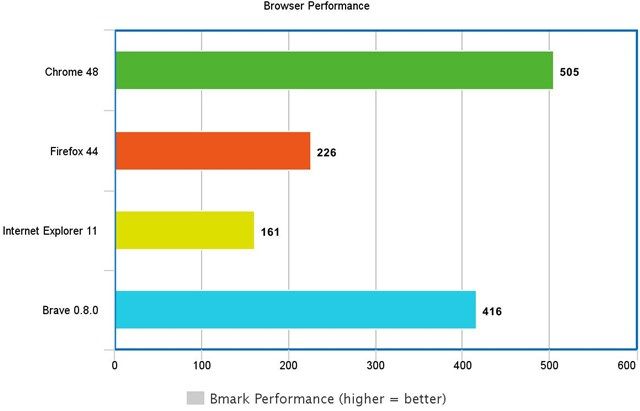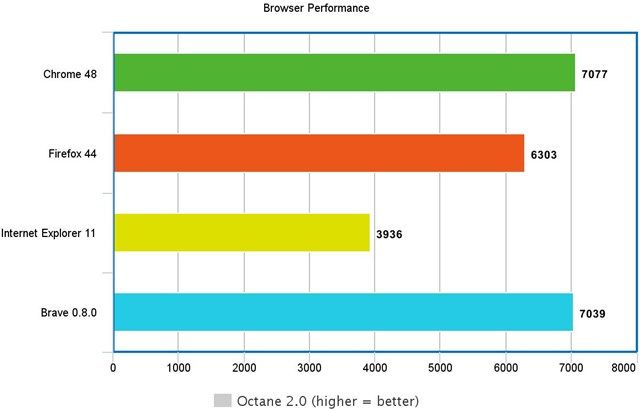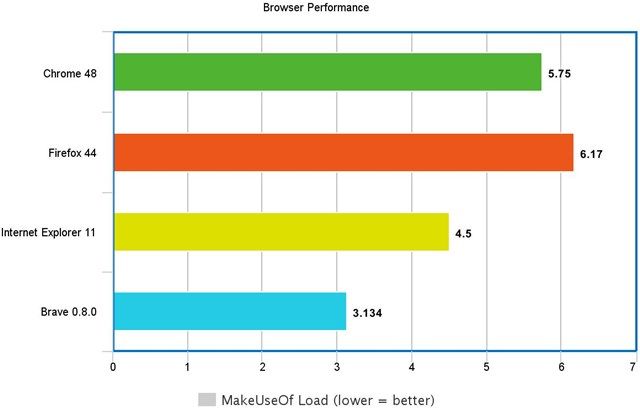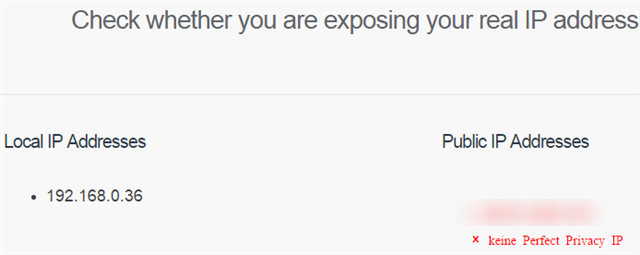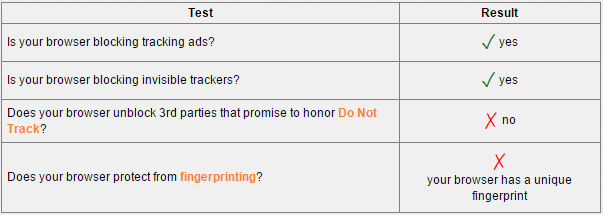Advertising pays the bills for most websites. Without ads, you wouldn't get any content. But bad ads can trash the browsing experience. Brendan Eich -- a Firefox founder -- believes he has the answer: Brave Browser.
Brave uses a potentially revolutionary method of ad-replacement. On top of that, it directs users to the HTTPS version of sites. While the rhetoric sounds great, does the performance match Eich's claim?
The Benchmarks and Methodology
I ran four benchmarks on four different browsers: Chrome, Internet Explorer, Firefox, and Brave Browser. Also, I discuss some security concerns. Here are the four benchmarks:
- Browsermark 2.1: Browsermark is the most general out of the four benchmarks used. It benches a combination of 3D and 2D graphics rendering, JavaScript, and HTML5.
- Bmark: Bmark tests HTML5 performance exclusively. It focuses on graphical performance and 3D rendering.
- Octane 2.0: Octane is JavaScript heavy (and an improvement over the older SunSpider benchmark). Chrome tends to dominate over Internet Explorer in this category.
- Loading MakeUseOf.com: MakeUseOf is relatively heavy on JavaScript.
BrowserMark 2.1 Benchmark Results
Brave bases its code on Chromium, the open source implementation of Chrome. It shouldn't surprise anyone that Brave and Chrome perform almost identically. On the other hand, Firefox and Internet Explorer fall short of its competition.
Bmark Benchmark Results
In HTML5 rendering, Brave takes a slight hit compared to Chrome. Firefox comes in third while Internet Explorer seems poised to fall off the map.
Octane 2.0 Results
As expected, Chrome and Brave excel on the Octane benchmark. Firefox does well and Internet Explorer, again, comes in dead last.
Loading MakeUseOf.com Results
Even while loading its own ads, Brave Browser loads websites significantly faster than competitors. For example, Brave loads pages 49% faster, compared to the slowest browser, Firefox. This is a tremendous advantage.
Brave Browser Features
Brave does three things really well: It prevents third-party tracking cookies; it replaces ads with safer, faster-loading ads; it loads websites really fast. Users aren't forced to into replacing-ads, either. In the Settings menu, users can choose to donate to the websites which they visit, instead of being force-fed ad-replacements. It also stymies tracking-pixels, a method used by unscrupulous advertisers to see whether or not a user opened an email.
Because Brave borrows its code base from the open source Chromium project, it inherits both the good and the bad: It includes Chromium's sandboxing technology but then it also inherits Chromium's (and Chrome's) numerous privacy vulnerabilities, such as the WebRTC leak bug. Browsers such as Firefox and Epic Privacy Browser do not possess this failing (3 great privacy browsers).
Brave is also susceptible to browser fingerprinting, which can unveil a user's identity, regardless of Virtual Proxy Network (VPN). Here's Brave's performance on Panopticlick (the EFF's automated test for HTML5 Canvas fingerprinting):
The results are mixed. On one hand, Brave does a good job of deflecting third-party tracking cookies. But it doesn't permit cookies from companies honoring Do Not Track. And while almost all browsers are susceptible to fingerprinting methods, Brave markets itself as a privacy-focused browser. It should offer some kind of defense against fingerprinting. And then there's the DNS leak, which unmasks VPN users. Overall, I'd rate Brave as a B in the privacy department. Good, but not amazing.
For those curious about the ad-replacement scheme, Brave currently loads a placeholder, instead of an ad. I assume the final version of Brave will load actual ads. Here's what it looks like at present:
Is Brave Browser Any Good?
Yes and no. Brave offers the same robust performance as Chrome, except without the titanic library of extensions (and Chrome offers great extensions). A lack of extensions can prove a deal-breaking short-coming. On the other hand, Brave's ad-replacement system is potentially revolutionary -- but I don't think we need an entire browser to achieve what a Chrome extension could.
At present, Brave's beta project might be preferable to Chrome, but it has some large problems. There are at least two kinds of users who might want to switch: those concerned about privacy and those concerned about morality. First, the sort of user who would prefer Brave would also want to use it with a VPN. But because of its WebRTC vulnerability, Brave users can be unmasked, even while shielded by a proxy. Second, many websites probably won't be enthusiastic about forcibly sharing ad-revenue with a second party. Can a company -- with any moral authority -- force sites to accept reappropriated ad-revenue?
If you feel comfortable with both points, then Brave browser might be for you. What do you think?


